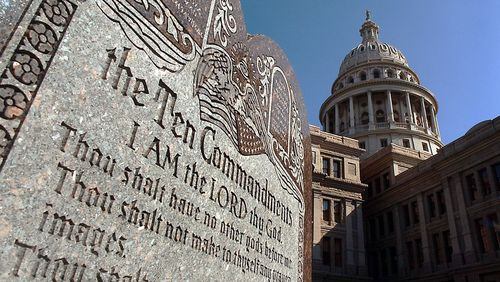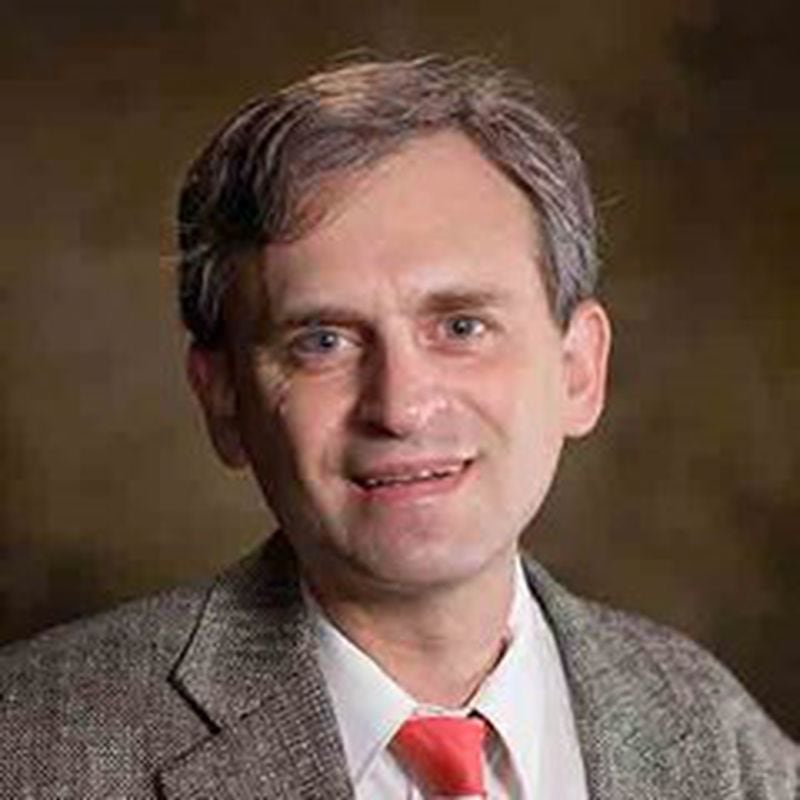Robert Maranto is the 21st Century Chair in Leadership in the Department of Education Reform at the University of Arkansas, and serves on the Fayetteville, Ark., school board.
Maranto has written several pieces for the blog. (Here is one.)
In this one, Maranto explores research on the inner workings of academia that suggests anti-Christian discrimination, saying the bias is akin to college racial discrimination in decades past. Such discrimination produces "like results: alienation and distrust of academic and media expertise, which can be exploited by demagogues like Mr. Trump," says Maranto.
Maranto’s piece comes in the wake of a new survey by the Pew Research Center that found sharp divides in how Republicans and Democrats view higher education in America.
According to Pew results released last week:
As recently as two years ago, most Republicans and Republican leaners held a positive view of the role of colleges and universities. In September 2015, 54% of Republicans said colleges and universities had a positive impact on the way things were going in the country; 37% rated their impact negatively.
By 2016, Republicans' ratings of colleges and universities were mixed (43% positive, 45% negative). Today, for the first time on a question asked since 2010, a majority (58%) of Republicans say colleges and universities are having a negative effect on the way things are going in the country, while 36% say they have a positive effect.
With that background, here is Dr. Maranto's piece.
By Robert Maranto
In "Inside Graduate Admissions," her study of graduate admission decisions at elite universities, University of Southern California education professor Julie Posselt relates the case of "Maria," a minority applicant from a historically black college. Posselt observed a committee of professors judging Maria and other applicants. Although Maria scored in the 99th percentile on the verbal section of the Graduate Record Exams and the 82nd percentile of the quantitative section, "her educational background clearly had induced skepticism, and they subjected her file to a more stringent review."
In jocular fashion, the committee chair and other professors berated Maria’s college and questioned her intellectual fitness, discounting standardized test scores and other objective criteria. Not surprisingly, the faculty rejected Maria, and though reluctant to judge fellow academicians, Posselt lamented, “whether Maria had received a fair hearing was debatable.”
African-American conservatives like Thomas Sowell would urge Maria to apply to a number of universities, to adjust for discrimination from one or two. (In fact, Sowell offered exactly that advice to Asian American applicants in his classic "Choosing a College.") African-American liberals like Lani Guinier would urge Maria to support affirmation action and sue for compensation.
Credit: Maureen Downey
Credit: Maureen Downey
While disagreeing about solutions, Sowell and Lanier might agree that such discrimination helps explain African-American suspicions of predominantly white institutions, and of the expertise therein.
No reasonable person would say the professors treated Maria fairly, given the details provided.
As it happens, I changed one of those details. In fact, Maria did not attend a historically black college, but a Christian college. She was not a racial minority, but within academia, a religious minority, a traditional Christian.
Compared to racial and gender discrimination, this kind of religious discrimination gets little attention from researchers. Professors do not find the topic interesting, which itself is telling. Yet the extant research findings are concerning.
Back in the 1980s, J.D. Gartner found Christianity reduced the chances of admission to psychology doctoral programs. Using 1999 data, "The Still Divided Academy" by Stanley Rothman, April Kelly-Woessner, and Matthew Woessner offered strong statistical evidence that (typically religious) socially conservative professors must publish more to get the same academic posts.
More recently, George Yancey's "Compromising Scholarship" showed that in many academic fields, significant numbers of professors, more than enough to blackball hiring decisions, express reluctance to hire evangelical and fundamentalist Christians.
None of this makes secular professors bad people. As psychologists William O’Donohue and Richard E. Redding argue, people generally express willingness to discriminate against those of other political or religious ideals. The danger comes when individual institutions lack ideological diversity, enabling an arrogant tendency to dismiss dissenters as unacceptable people with unacceptable opinions.
As Stanley Rothman documented in four decades of research culminating in "The End of the Experiment," for cultural elites like professors, moviemakers, and reporters, traditional religious views are beyond the pale. People like Maria suspect as much.
This bigotry has at least four costs to academia, and society. Like other biases, anti-Christianity limits the talent we recruit. Maria might have made a great professor, if she had the chance.
Second, exiling dissenters retards research. On subjects from family life to foreign policy, academia has scores of professors asking questions of interest to the secular left for every one doing so from the religious right. This limits our understanding of a complex world.
Relatedly, when intellectual elites celebrate the traditionalism of most Muslims and Hindus while castigating it among some Christians, their support for multiculturalism seems highly selective, even hypocritical.
Finally, an unrepresentative intelligentsia leads many of our fellow Americans to distrust us, and our research. When traditional Christians find academic, media, and cultural institutions closed to people like them, they see little reason to believe those authorities. Not surprisingly, recent polls show that Republicans, who are disproportionately traditional Christians, have increasingly lost faith in higher education.
To return to racial examples, the all-white elite universities of the past often avoided or disparaged African-American perspectives. Naturally, African-Americans reacted with distrust, and some fell prey to anti-white demagogues.
Today, traditional Christians perceive elite contempt for them. In reaction, some reject the expertise of the media and academia, instead falling in with demagogues like Mr. Trump.
If my fellow cultural elites actually knew and respected those “deplorables,” we could find truces in our seemingly endless culture wars. Such compromises require negotiation, and for that, we must allow people who disagree with us to have seats at the table, including the university seminar table.








